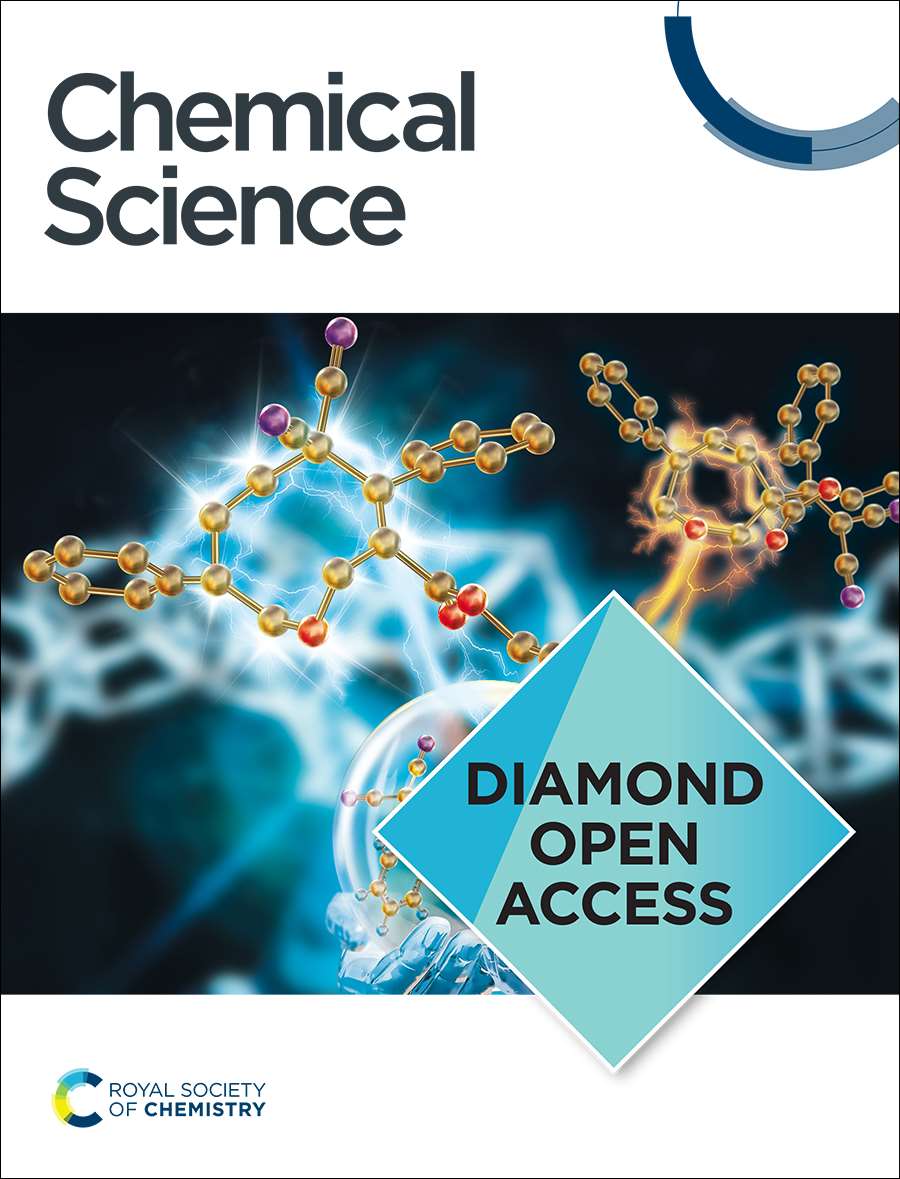Pd(II)催化的对映体选择性 C-H 烯化反应和静态受阻二元酚的光调节作用
IF 7.6
1区 化学
Q1 CHEMISTRY, MULTIDISCIPLINARY
引用次数: 0
摘要
具有固有手性的立体受阻二元乙烯在手性信号调节、光控液晶等方面显示出巨大潜力。它们在开环异构体的轴向手性和闭环异构体的中心手性之间独特的对映体特异性光转化,可以突破传统手性二元乙烷中多个手性中心相互干扰的瓶颈。然而,这些本征手性二元乙烷需要通过制备型手性高效液相色谱进行必要的手性解析,通常会导致分离效率和生产规模受到限制。在这里,我们提出了一种对映选择性烯烃化策略,可从亲手性立体受阻二元乙烯直接构建本征手性二元乙烯,实现高产率和对映选择性。由此得到的异构体可通过加入介原单元进一步装饰,其衍生物可成功实现 LC 的蓝、绿、红反射颜色的可逆光调节,具有优异的热稳定性、抗疲劳性和纹理无序性,证明了直接对映选择性烯烃化技术在本征手性二元乙烯光调节中的实际应用潜力。本文章由计算机程序翻译,如有差异,请以英文原文为准。
Pd(II)-Catalyzed Enantioselective C-H Olefination and Photoregulation of Sterically-Hindered Diarylethenes
Sterically-hindered diarylethenes with intrinsic chirality have shown great potential in chiral signal regulation, light-controlled liquid crystals (LCs), etc. Their unique enantiospecific phototransformation between axial chirality of ring-open isomer and central chirality of ring-closed isomer can break through the bottleneck of the interference between multiple chiral centers in traditional chiral diarylethenes. However, these intrinsic chiral diarylethenes require necessary chiral resolution through preparative chiral HPLC, typically resulting in limited separation efficiency and production scale. Here, we present an enantioselective olefination strategy to directly construct intrinsic chiral diarylethenes from a prochiral sterically-hindered diarylethene, achieving high yields and enantioselectivity. The resulting isomers can be further decorated by incorporating mesogenic units, and the derivatives enable the successful reversible photoregulation of blue, green, and red reflection colors of LC with excellent thermal stability, fatigue resistance, and little texture disorderliness, demonstrating the practical application potential of direct enantioselective olefination in photoregulation with intrinsic chiral diarylethenes.
求助全文
通过发布文献求助,成功后即可免费获取论文全文。
去求助
来源期刊

Chemical Science
CHEMISTRY, MULTIDISCIPLINARY-
CiteScore
14.40
自引率
4.80%
发文量
1352
审稿时长
2.1 months
期刊介绍:
Chemical Science is a journal that encompasses various disciplines within the chemical sciences. Its scope includes publishing ground-breaking research with significant implications for its respective field, as well as appealing to a wider audience in related areas. To be considered for publication, articles must showcase innovative and original advances in their field of study and be presented in a manner that is understandable to scientists from diverse backgrounds. However, the journal generally does not publish highly specialized research.
 求助内容:
求助内容: 应助结果提醒方式:
应助结果提醒方式:


